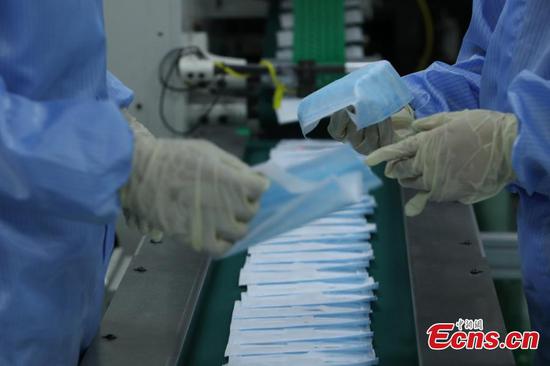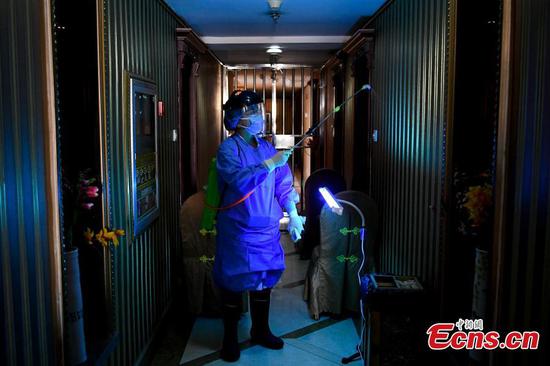As China increases its R&D expenditure, it also has made great progress in its science and technology, according to the report "The State of U.S. Science and Engineering 2020" by the National Science Foundation, or NSF.
The report shows that in 2017, China spent $496 billion on research and development, following closely behind U.S. R&D expenditure of $549 billion.
R&D produces new knowledge-consequently, China's science and technology capabilities have taken a great stride forward, as indicated by various measurements in the report.
China's share of published science and engineering papers has risen tenfold, from 5 percent of the world's total in 2000, to 21 percent in 2018. And China's output in terms of absolute quantity exceeded the United States' output of 17 percent.
Publications receiving more citations is another indicator of impact and achievement. In that regard, China's index more than doubled, from 0.37 in 2000, to 1.1 in 2016, indicating rising impact in the science and engineering field.
The emphasis on scientific research varies from country to country. And among the largest producers in 2018, the U.S. and the EU each produced more biomedical and health sciences articles than did China. However, China ranked No 1 in the production of engineering articles-more than twice as many engineering articles as the U.S..
The report also shows that about 23 percent of research resulted from international collaboration. In the U.S., 26 percent of science and engineering publications are from collaboration, and China is the top collaborator of the U.S..
When it comes to value-added output of high R&D-intensive industries, the data showed that China also made impressive progress. In 2003, China's high-intensive industry output accounted for only 6 percent of the global total.
In 2018, China's output had grown to 21 percent, surpassing the European Union's 19 percent. The U.S. continued to hold the No 1 spot at 32 percent, down from 38 percent in 2000, primarily due to China's increased share.
When it came to value-added output of medium-to-high R&D-intensive industries, China's output ranked No 1, with 26 percent of the global total in 2018, up from 7 percent in 2003.
Data on patent families provide a broad unduplicated measure of global inventions. Based on the data, inventors in China accounted for about half (49 percent) of such patent families in 2018. Japan ranked No 2 at 17.5 percent, and the U.S. accounted for only 6.8 percent.
The report concluded that the U.S. continued to lead globally in R&D expenditure and in the number of highly cited research publications. But at the same time, other nations, particularly China, are rapidly developing their science and engineering capabilities. As a result, the U.S. is playing a less dominant role in many areas of science and engineering activity


















































